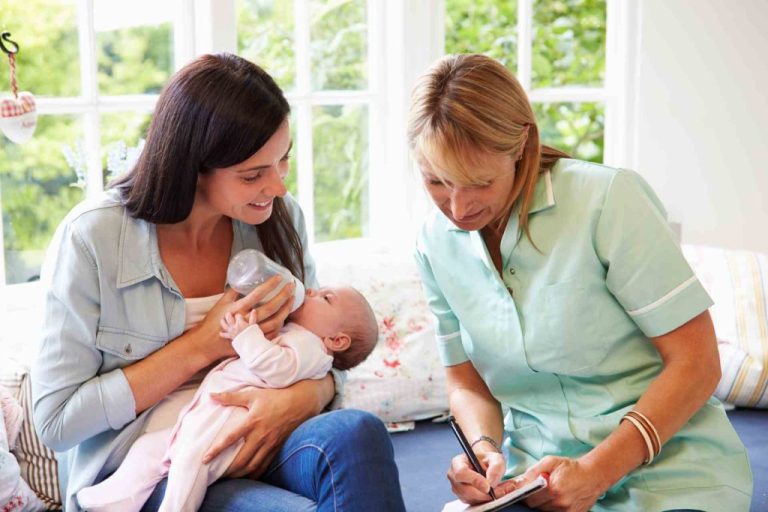The Scottish Government has published a new health visiting action plan, which aims to increase the number of pre-school aged children receiving home visits and health reviews each year.
Ministers said the plan would enhance health visiting services across the country, allowing more of Scotland’s children to develop to their full potential and be as healthy as possible.
“It also values the health visiting workforce which is crucial to translating this plan into action”
Alison Morton
Health visitors have welcomed the publication, stating that it showed a “powerful message of endorsement” by the Scottish Government for the vital work that they do.
The plan, published this week, has set out many commitments by the government, including a review of health visitor recruitment and retention practices and opportunities to increase their skills in key areas.
The actions set out in the plan are expected to be fully delivered by 2030, but the document will guide the Scottish Government’s approach to support health visiting services until 2035.
All health visitors in Scotland deliver the universal health visiting pathway (UHVP) as a core part of their role.
The pathway entitles families to 11 home visits between pre-birth and a child turning five, three of which should involve a health visitor doing a formal review of the family and child’s health.
These formal reviews support the early identification of any child development concerns and enable the health visitor to be proactive in putting in place any specialist support that a family might need.
However, national statistics show that the proportion of eligible children receiving health visitor contacts at certain stages – 11 to 14 days, six to eight weeks, 13 to 15 months, 27 to 30 months and four to five years – has decreased annually since 2020-21.
Meanwhile, the need for health visiting intervention appears to be rising, with an increase in the proportion of children being identified with a developmental concern between 13 months and five years.
Among the measures of success that the Scottish Government will judge the plan against is whether the percentage of eligible children receiving health visitor contacts at each of the certain stages maintains or increases each year by 2030-31.
The plan aims to achieve these goals by specific actions linked to four key objectives:
Having a skilled, confident and knowledgeable health visiting workforce able to fully promote and protect child health and development in line with professional expectations;
Having sufficient health visiting workforce capacity to identify and appropriately respond to the needs of all pre-school children and their families;
Health visitors having a clear role and remit that is coherently integrated into wider children and family support services;
The health visiting service being appropriately prioritised and promoted by relevant leaders and decision makers in recognition of its role in prevention and early intervention.
Actions include a new review of health visitor recruitment and retention across Scotland, to highlight effective practices and share findings across health boards.
Health visitors will also be offered opportunities “to increase their skills, knowledge and confidence” on topics like supporting parenting, infant feeding and perinatal health.
It comes after an evaluation of UHVP found that health visitors were undertaking additional visits outside of the core pathway, mostly on these issues.
The Scottish Government further said it would commission the development of clinical guidance on appropriate skill mix in health visiting, and pledged to enhance information available for parents and carers so they know what to expect from health visiting services.

Alison Morton
Responding, the chief executive of the Institute of Health Visiting, Alison Morton, said: “The publication of the Scottish Government’s action plan for health visiting provides a powerful message of endorsement for the vital work of health visitors in Scotland.
“We support this comprehensive plan which is built on the best evidence to ensure that all families receive the support that they need to thrive during pregnancy and the critical earliest years of life.
“It also values the health visiting workforce which is crucial to translating this plan into action and build on the successes that we have already seen in health visiting in Scotland in recent years.”

